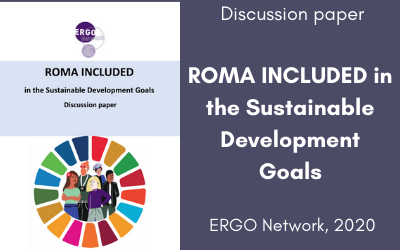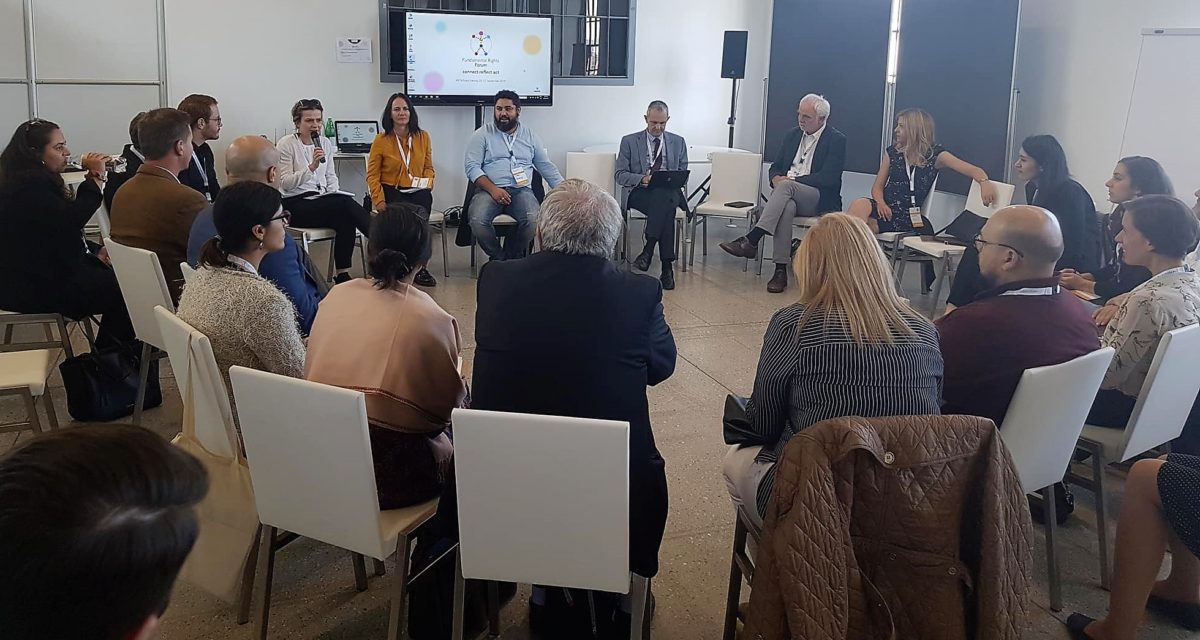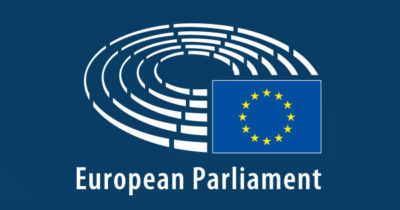Fighting antigypsyism in the spotlight of the 2018 Fundamental Rights Forum in Vienna
At this year’s Fundamental Rights Forum of the Fundamental Rights Agency on 26 September in Vienna, ERGO Network together with its partners in the Alliance against Antigypsyism and the European Parliament Anti-Racism and Diversity Intergroup (ARDI) held a session “Addressing antigypsyism: new strategies to ensure fundamental rights of Roma in Europe”.
The session explored new strategies to address persistent antigypsyism in our societies and raised awareness of the need to change the discourse on Roma inclusion and ensure fundamental rights for Roma in Europe. Through inputs of Mirjam Karoly (Romano Centro) and presentations of Adriatik Hasantari (Roma Active Albania), Jamen Gabriela Hrabanova (ERGO Network), Michael Privot (European Network against Racism), Jonathan Mack (Central Council of German Sinti and Roma), Rita Fober (assistant MEP Soraya Post) and many others, three key messages were communicated with the participants:
- Antigypsyism is the main cause of Roma exclusion. It is a specific form of racism towards Roma, Sinti and other groups that the majority society perceive as ‘gypsies’ and there is a high level of acceptance of this phenomenon.
- Recognition of antigypsyism is partial, even though it manifests itself frequently and takes many shapes: hate-speech in public, media and political narratives, hate-crime, discrimination in schools, by employers and employment services, health institutions, housing authorities, etc.
- Antigypsyism is also present in the EU enlargement region, where it is neither recognized nor properly addressed. Roma integration strategies in this region tend to remain ‘paper oriented’ and are not systematically implemented.
One of the conclusions of the session was that for the fundamental rights of Roma to be achieved, it is important to 1) change the public and political discourse on Roma: from Roma inclusion to combatting antigypsyism; 2) strengthen alliances and 3) have concrete targeted measures in place as well as committed institutions, political will and funding to mainstream the fight against antigypsyism into relevant policies, such as National Action Plans against Racism.
Moreover, recognition of antigypsyism by relevant stakeholders as well as the public is urgent and it should be reflected in functional responsible institutions as well as in creating new structures, such as Truth and Reconciliation Commissions for combatting antigypsyism at both EU and Member States level. Institutions need to monitor, record and report acts on antigypsyism; make sure that budgets are not discriminatory; that Roma are employed, including Roma youth; that Roma participate in public and political life; enjoy access to justice; that there is no segregation, etc.
Finally, fighting antigypsyism should go beyond the EU. Work has to be done in the enlargement region as well, focusing on recognizing, preventing, monitoring, reporting, and responding properly to acts of antigypsyism by implementing relevant policies and legislation.
The Director of ENAR, Michael Privot sent a strong message to participants that “we have to be specific in our fight” and to call the problem by its name so it can be properly tackled and explained that Roma participation is an important element of an organization’s strategy.

The Alliance against Antigypsyism has been confirmed as a strong group of advocates coming from different backgrounds. In addition, this year’s Fundamental Rights Forum invited Roma youth representatives from Austria, Hungary, France, Romania, Spain and Slovakia, who attended different sessions of the Forum and enriched the knowledge of a wide range of participants regarding the topics such as housing, education and pop culture narratives.




 decision-makers, MEPs, UN officials, civil society organisations and grassroots Roma women to discuss the multiple discriminations of Roma women and provide recommendations for the elimination of discrimination.
decision-makers, MEPs, UN officials, civil society organisations and grassroots Roma women to discuss the multiple discriminations of Roma women and provide recommendations for the elimination of discrimination. 

